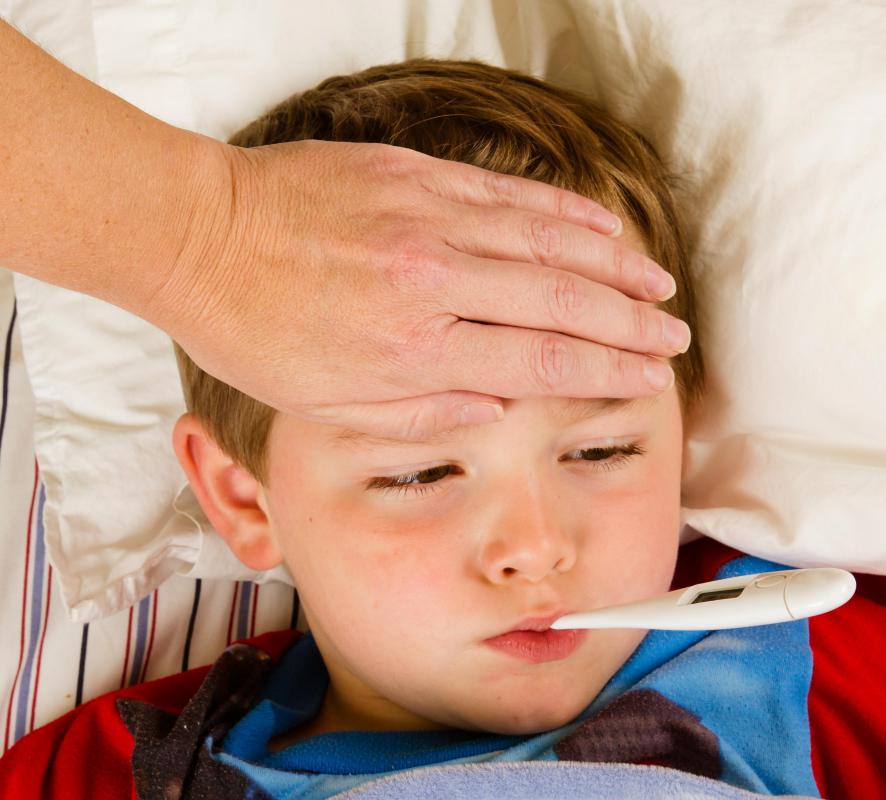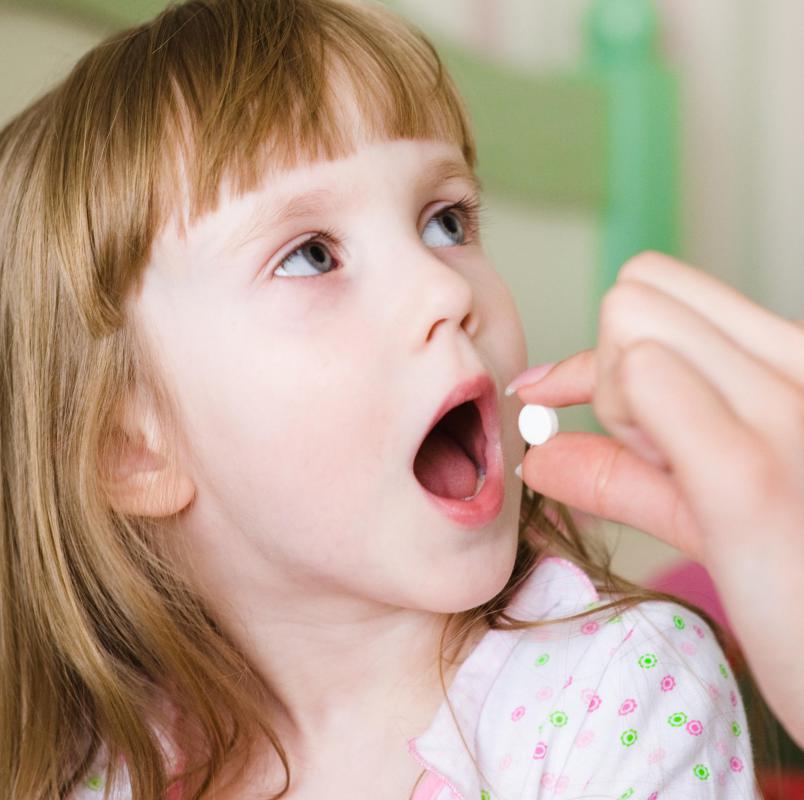At WiseGEEK, we're committed to delivering accurate, trustworthy information. Our expert-authored content is rigorously fact-checked and sourced from credible authorities. Discover how we uphold the highest standards in providing you with reliable knowledge.
What is Roseola?
Roseola, more properly known as roseola infantum, is a very common childhood illness. As many as 90% of children under the age of two will be exposed to roseola, with around one third of these children developing the disease. In most cases, the illness is benign, with the child experiencing no long term damage, but in rare cases, complications can emerge and make the condition more serious.
This viral infection is also known as exanthem subitum or sixth disease. It starts with a classic high fever, which may be accompanied with a runny nose, irritation, fatigue, and swollen lymph nodes. Once the fever breaks, a distinctive rash appears. The rash is comprised of small red spots which blanch white when they are touched, and it is not itchy or irritating, unlike many other childhood rashes.

The rash will eventually resolve on its own, and the child will return to his or her normal activity level. During the peak of the roseola fever and rash, the child may become extremely restless and irritable, and parents may want to keep a variety of distractions around to keep the child occupied, such as games, toys, and books which the parents can read aloud to the child.

With rest at home and plenty of fluids, children usually recover from roseola. In some cases, a doctor may recommend some over the counter medications to reduce the fever and discomfort. The child may also experience febrile seizures if the fever is very high, and these can be frightening for care givers. When febrile seizures are observed, parents should call their doctors for advice.

Children with compromised immune systems are more prone to serious complications as a result of roseola, and in these children, special treatment recommendations may be made. Parents of children with compromised immune systems are usually informed about the increased risks from normally benign childhood illnesses including roseola, and they should make sure that they have contact information for the doctor readily available so that they can call for assistance and advice quickly.

Like other viral infections, roseola is contagious. Children with this condition should stay home to avoid spreading the virus to others, and because rest will help break the fever more quickly. Other members of the household should be careful to wash their hands after contact with the infected child, and immunocompromised adults should be warned to stay away from the household until the child is feeling better, as they can contract the virus and become very sick.
AS FEATURED ON:
AS FEATURED ON:

















Discuss this Article
Post your comments